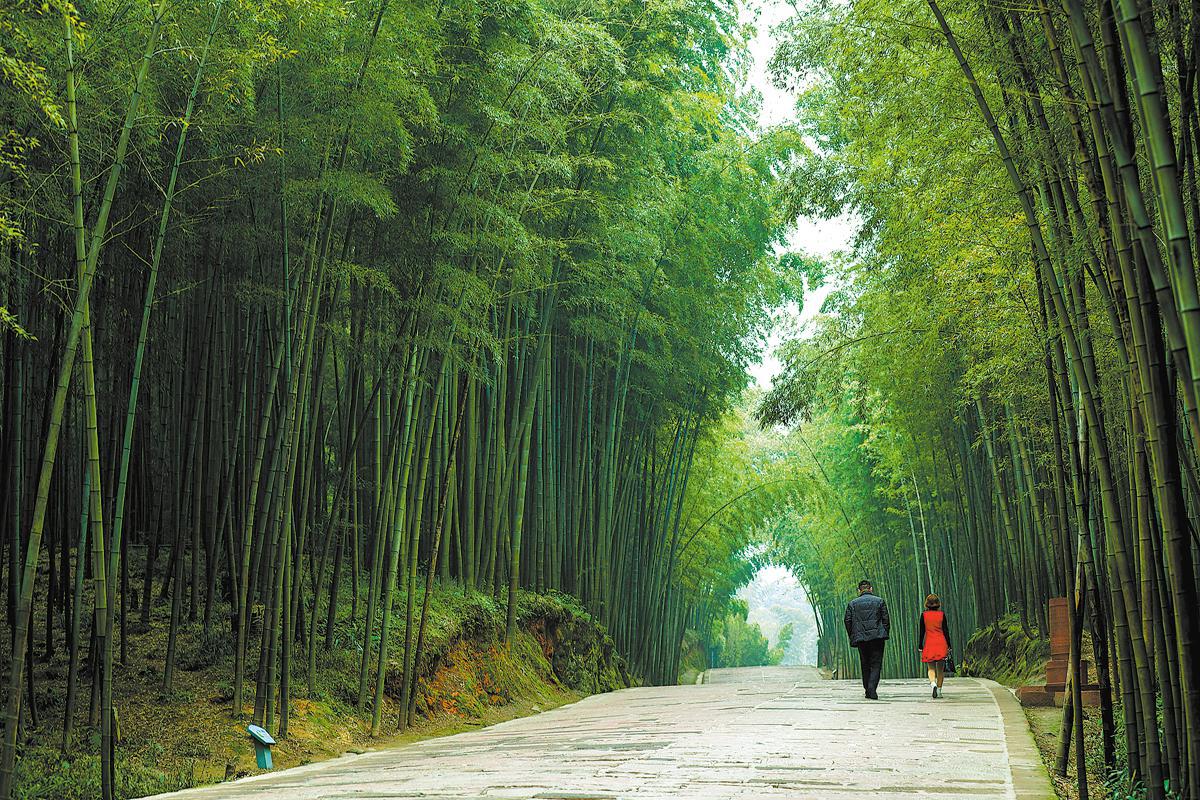Sichuan city spearheads bamboo use over plastic


Visitors to the Yibin Bamboo Culture Museum in Sichuan province are often amazed by the extensive range of products that can be made from the fast-growing reed.
The museum's Bamboo as a Substitute for Plastic exhibition area displays an array of bamboo products, from bamboo furniture and handicrafts to bamboo-pulp molded tableware and bamboo-fiber textiles.
Li Bingjie, director of the museum, said bamboo is a perfect alternative to plastics because it is renewable, has a short growth cycle, strong carbon sequestration capacity, and is biodegradable.
"A key mission of our museum is to raise public environmental awareness through popularizing the concept of using bamboo as a plastic alternative," she said.
Since opening last May, the museum has received more than 50,000 study visits, Li added.
In 2022, the Chinese government and the International Bamboo and Rattan Organization jointly proposed the Bamboo as a Substitute for Plastic Initiative, with the aim of reducing plastic pollution and carbon emissions.
In line with the initiative, Yibin has made developing and producing bamboo-based plastic alternatives a strategic priority for its bamboo industry, said Zheng Renhong, deputy director of the city's rural work leading group office.
As one of the country's most bamboo-rich regions, the city has 485 bamboo species and about 222,700 hectares of bamboo forests — that's enough to cover the small African nation of Comoros. Last year, the comprehensive output value of its bamboo industry reached 42.8 billion yuan ($5.96 billion), Zheng said.
Official statistics show that the city is home to 51 processing companies with a combined annual production capacity of 910,000 metric tons of bamboo-pulp board, paper and molded products.
To ensure raw material supply for these companies, Zheng said Yibin has been advancing large-scale operations and adopting high-yield cultivation techniques in its bamboo forests. He added that the city has established professional harvesting teams to avoid unsustainable logging practices.
Forest firebreaks, logging roads and other infrastructure, along with modern methods like using drones and cableways, enable harvesting in previously inaccessible mountainous areas, he said.
"These measures have boosted bamboo yield per mu (0.067 hectare) in Yibin from approximately 800 kilograms in 2015 to over 1 ton in 2023," Zheng said.
In the city's Xingwen county, a bamboo household products trading center has been put into operation, offering nearly 10,000 varieties of bamboo products through both online and offline channels.
To facilitate the city's green and low-carbon transition and bamboo industry development, the standing committee of the Yibin people's congress issued a decision in October. It encourages Party and government agencies, State-owned enterprises and public institutes across the city to take the lead in purchasing and using bamboo products.
Yibin also aims to develop 2,000 application scenarios where bamboo is used as a substitute for plastic by 2027, integrating green consumption concepts into its residents' daily lives, local authorities said.
- 14 injured in off-road racing accident in East China
- China to beef up personal data protection in internet applications
- Film-like lining in school uniforms prompts investigation in Inner Mongolia
- High-temperature geothermal resource discovered in Shandong
- Earthquake strikes Guizhou county early morning
- A continued commitment to the people



































